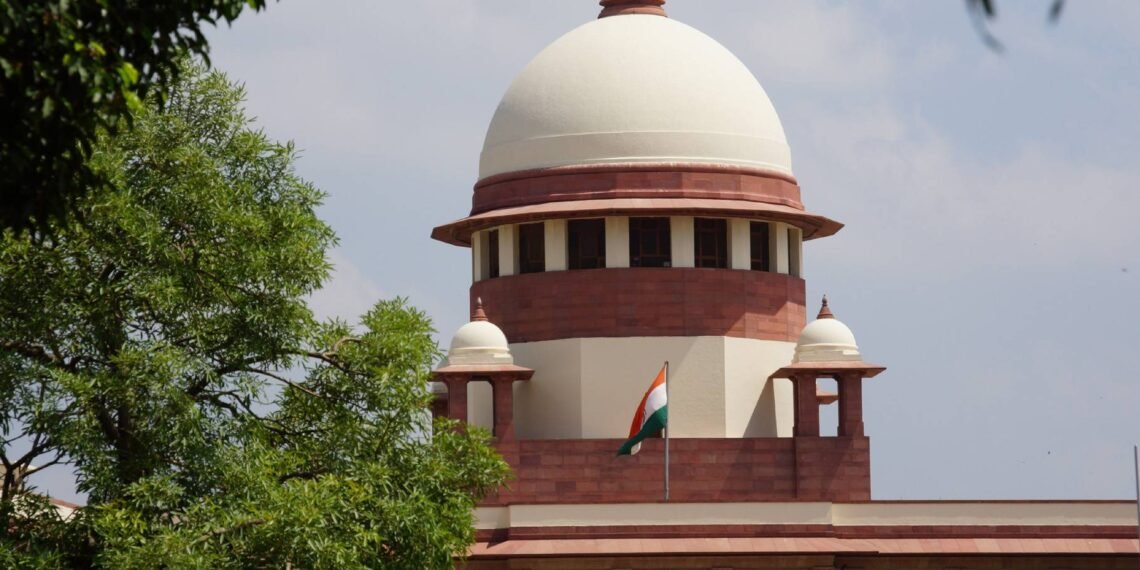As judges increasingly make public statements that appear to support Hindutva ideologies, the line between the judiciary and politics continues to blur. Remarks from judges like Justice Yadav and Judge Diwakar have caused a stir, with critics accusing them of aligning with a particular political agenda
BY Navin Upadhyay
In recent years, India’s judicial system, renowned for its supposed impartiality and adherence to constitutional principles, has witnessed instances where judges appear to have crossed a sacred boundary—merging their judicial functions with political ideologies. While the judiciary is expected to maintain neutrality and distance itself from the political fray, several cases have emerged where judicial remarks have caused public controversy, raising questions about the influence of ideology in the courtroom.
Justice Shekhar Kumar Yadav of the Allahabad High Court became the latest addition to this list. At a recent Vishwa Hindu Parishad (VHP) function at Prayagraj, he delivered a speech that seemed to embrace the agenda of the ruling majority. His endorsement of the Uniform Civil Code (UCC) was quickly followed by remarks seen as targeting the Muslim community, further deepening the political divide.
Speaking about the future direction of the country, Yadav declared that the nation would operate according to the “bahusankhyak” (majority) will, a term often associated with the majority community in India. This pronouncement raised eyebrows for its overt political flavor, with critics arguing that it crossed the fine line between judicial independence and political advocacy.
However, Justice Yadav was not the first to make headlines for such remarks. Several other judges have been embroiled in similar controversies over the years, often making statements that seemingly align with a particular ideology or majority viewpoint, despite the Constitution’s promise of secularism and equal rights for all citizens.
In March 2024, Additional District Judge Ravi Kumar Diwakar from Bareilly, Uttar Pradesh, stirred the pot when he praised Chief Minister Yogi Adityanath in his court order related to the 2010 Bareilly riots case.
Diwakar likened Adityanath to a “Philosopher King,” suggesting that a religious man in power led a life of sacrifice and dedication. His comment, though intended as praise, was criticized for being a political endorsement, especially given Adityanath’s polarizing stature in Indian politics. The Allahabad High Court quickly expunged Diwakar’s remarks, labeling them as “unwarranted” and containing “political overtones.”
Justice V. Srishananda of Karnataka also found himself at the center of controversy in mid-2024. During court proceedings, he referred to a Muslim-majority locality in Bengaluru as “Pakistan,” a remark that many found deeply derogatory and discriminatory. Justice Srishananda’s statements, combined with others made against a female advocate, led the Supreme Court to take suo-motu cognizance of his conduct. Although the Karnataka High Court accepted his apology, the damage was done, and the matter served as yet another reminder of how deeply the lines between law and ideology could blur.
Even past judicial figures have been subjects of similar debates. Justice H.L. Dattu, former Chief Justice of India, drew sharp criticism in 2014 for stating that India, as a Hindu-majority nation, should prioritize the rights and sentiments of Hindus in decision-making. While the statement didn’t directly attack any particular religious community, it was widely seen as catering to the Hindu-majority viewpoint, disregarding the country’s secular foundation.
Other judges, such as Justice R.S. Rathi in Rajasthan, have also drawn controversy with remarks that resonate with the Hindutva narrative. In 2020, Rathi controversially commented on “love jihad”—a conspiracy theory alleging Muslim men deceive Hindu women into marriage for religious conversion. Despite lacking factual basis, his statement was embraced by right-wing groups and criticized by those who viewed it as discriminatory against Muslims.
These remarks and the ensuing public backlash highlight a broader issue: the growing intersection of politics and the judiciary. With more and more judges appearing to align with specific political ideologies, the question arises: where does the line between judicial independence and political influence lie? While some judges, like Justice Rajendra Mal Lodha in 2019, have warned against the dangers of a “Hindu Rashtra” and stressed India’s commitment to secularism, others have seemingly espoused views that favor a majoritarian agenda.
Justice K.M. Joseph’s dissenting judgment in 2018, which raised concerns over the “saffronization” of the judiciary, only added fuel to the fire, suggesting that the judiciary was under the sway of political forces. His warnings underscored fears that the judiciary’s independence could be compromised if political considerations continued to influence judicial appointments and decisions.
What these controversies illustrate is that the boundary between law and politics in India is increasingly difficult to maintain. Judges are not mere arbiters of the law; they are also members of a society where ideological divides are deepening. Their words, whether spoken from the bench or in public, have the power to sway opinions and shape the national discourse. When judges make controversial remarks, they risk compromising the public’s faith in the judicial system, especially when their comments seem to favor one community or ideology over another.
As the nation watches these developments unfold, one thing is clear: Justice Yadav is not alone. The judicial arena has seen many instances where judges have ventured into political territory, speaking in ways that seem to align with a particular ideology. Whether these comments are born out of personal beliefs or the pressures of the political climate, they raise an important question about the future of India’s secular and independent judiciary. In a country as diverse and complex as India, the challenge will always be maintaining the delicate














